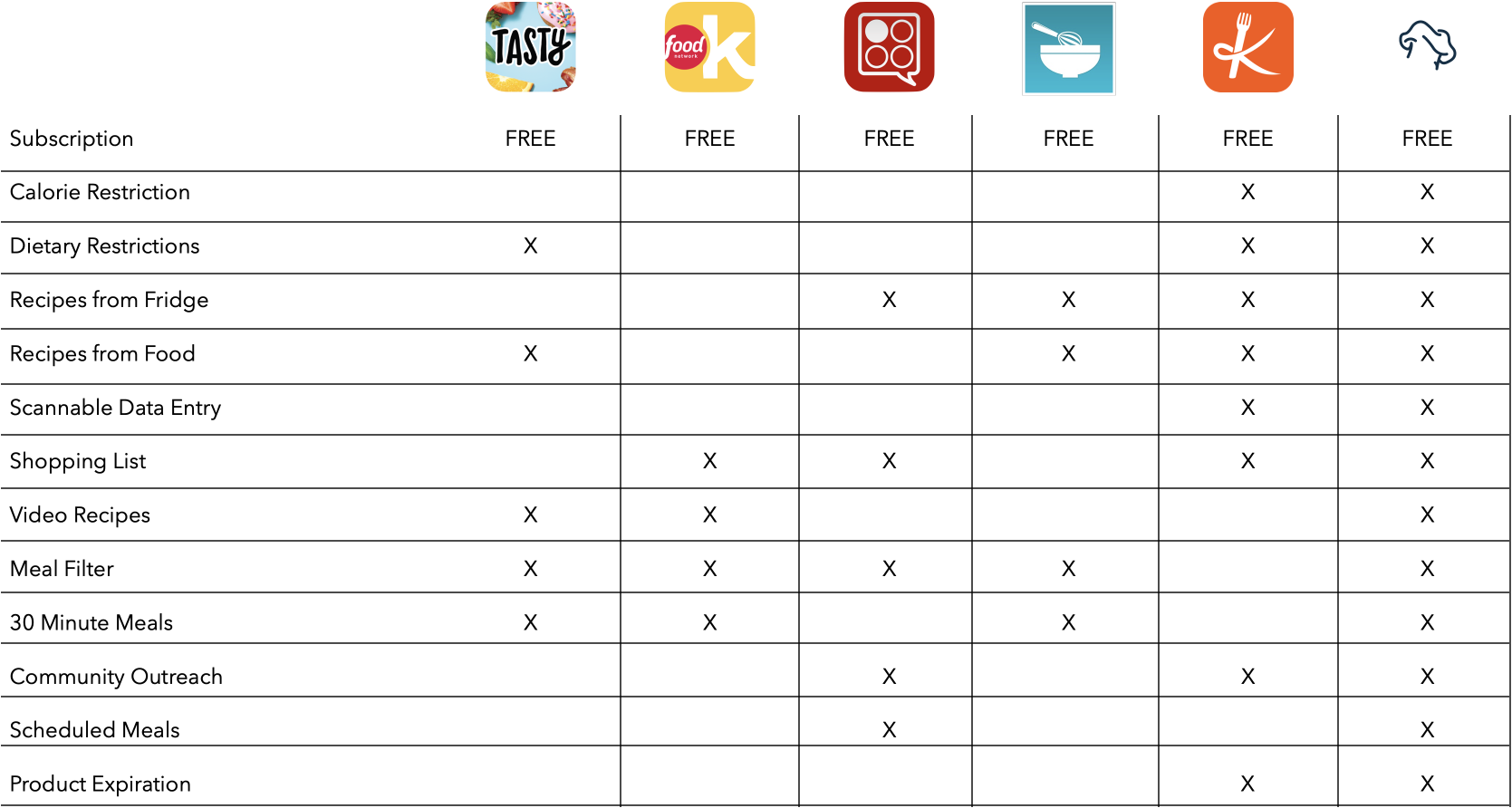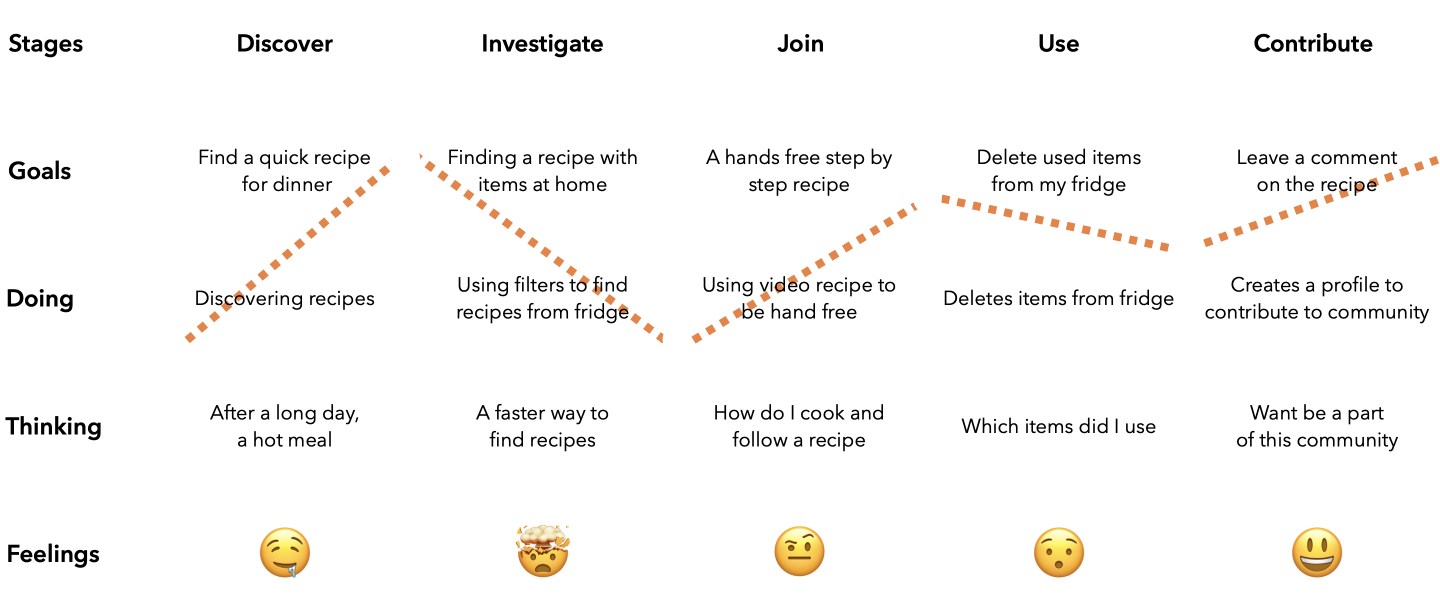Project



Introduction:
FRIO addresses the common challenge among college students of limited time, budget, and cooking skills by offering a platform that curates recipes based on available ingredients and teaches basic cooking skills. This case study delves into the thought process, challenges faced, and solutions implemented to develop FRIO, providing insights into its innovative approach to promoting healthy eating habits among college students.
53% of Americans don’t know how to cook
39% of students suffer from food insecurity
1/3 of students skip at least one meal a day
Identifying the Problem:
Recognizing the prevalence of food insecurity and unhealthy eating habits among college students due to limited time, budget constraints, and lack of cooking skills.
Understanding User Needs:
Acknowledging the need for fast, easy-to-make recipes that utilize ingredients readily available at home, along with a desire for community support and feedback.
Emphasizing Importance of Cooking Skills:
Highlighting the significance of cooking skills as essential for promoting healthier eating habits and reducing reliance on unhealthy, mass-produced campus food.

Challenges Faced:
Limited Cooking Knowledge:
Overcoming the challenge of catering to users with varying levels of cooking expertise, from beginners to more experienced individuals.
Budgetary Constraints:
Addressing the financial limitations of college students, ensuring that the platform offers cost-effective recipes that minimize food waste.
User Engagement:
Encouraging user participation and interaction within the platform's community features, such as recipe sharing and feedback mechanisms.

Solutions Implemented:
Discover Feature:
Simplifying the recipe discovery process with accessible filters and informational recipes tailored to users' preferences and dietary restrictions.
Recipe Management Tools:
Integrating features such as ingredient-based shopping lists and multiway recipes, streamlining the cooking experience and minimizing waste.
My Fridge Functionality:
Allowing users to find recipes based on ingredients they already have at home, promoting resourcefulness and reducing the need for additional grocery purchases.
Social Engagement:
Facilitating community interaction through features like saved recipe collections, user-contributed recipes, and options for dietary preferences and calorie tracking.
Outcome and Conclusion:
FRIO has successfully addressed the culinary challenges faced by college students, providing a convenient and user-friendly platform for accessing nutritious and budget-friendly recipes. By prioritizing user needs and incorporating innovative features, FRIO has empowered college students to make healthier food choices, improve their cooking skills, and reduce food waste.
This case study showcases my ability to develop solutions that address complex societal challenges, leveraging technology to promote and empower individuals to lead healthier lifestyles. Through FRIO, we have demonstrated our proficiency in user-centered design, problem-solving, and innovation in the realm of food and nutrition education.